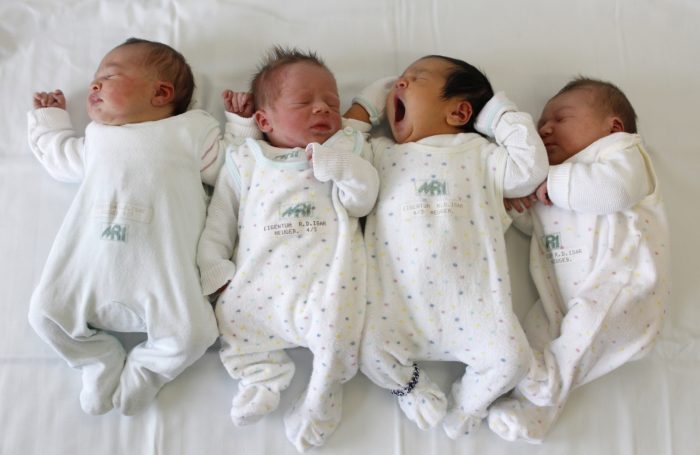An estimated 26,039 babies will be born in Nigeria on New Year’s Day, the United Nations Children Fund (UNICEF) has said.
In a release on new year’s babies, UNICEF stated that Nigerian babies will account for almost 7 percent of the estimated 392,078 babies to be born on New Year’s Day globally, the third highest number of babies in the world, after India and China.
The estimated birth records revealed that India leads the chart with 67,385, followed by China with 46,299 while Nigeria is in the third position with estimated 26,039 babies birth.
Others are Pakistan 16,787, Indonesia 13,020, United States of America 10,452, Democratic Republic of Congo 10,247 and Ethiopia 8,493.
The UNICEF Nigeria Representative, Peter Hawkins, stated that the beginning of a new year and this year, a new decade is a chance for us to reflect on our hopes and dreams for the future of Nigeria, especially for those who stand to inherit this country; her children.
He said; “as we start each new year, we are reminded of the potential of each and every Nigerian child embarking on his or her life’s journey, if only they are given that chance to survive and thrive.”
Each January, UNICEF celebrates babies born on New Year’s Day, an auspicious day for child birth around the world.
In 2018, 2.5 million newborns died in just their first month of life around the world; about a third of them on the first day of life.
In Nigeria, this was 318,522 deaths. Among those children, most died from preventable causes such as premature birth, complications during delivery, and infections like sepsis. In addition, more than 2.5 million babies are born dead each year with more than 400,000 stillborn deaths taking place in Nigeria annually.
In 2020, UNICEF is calling for world leaders and countries to invest in health workers with the know-how and equipment to save every newborn.
Over the past three decades, the world, including Nigeria, has seen remarkable progress in child survival, cutting the number of children worldwide who die before their fifth birthday by more than half.
“In Nigeria, this number has been cut by about 500,000 between 1990 and 2018. But there has been slower progress for newborns. Babies dying in their first month of life accounted for 47 per cent of all deaths among children under five in 2018, up from 40 per cent in 1990. In Nigeria, these figures are 29 per cent, up from 21 per cent in 1990.”
UNICEF’s ‘Every Child Alive’ campaign therefore, called for immediate investment in health workers with the right training, who are equipped with the right medicines to ensure every mother and newborn is cared for by a safe pair of hands to prevent and treat complications during pregnancy, delivery and birth.
Hawkins stated further that too many mothers and newborns are not being cared for by a trained and equipped midwife or nurse, and the results were devastating, adding that we can ensure that millions of babies survive their first day and live into this decade and beyond if every mother has good pregnancy care and every baby is born into a safe pair of hands.

 Join Daily Trust WhatsApp Community For Quick Access To News and Happenings Around You.
Join Daily Trust WhatsApp Community For Quick Access To News and Happenings Around You.


